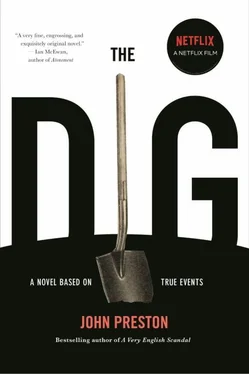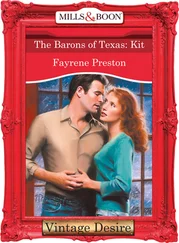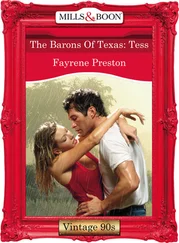There’s no doubt now that this ship is bigger than the one at Snape. And by a good way too. The only ship that can compare to it — the only one I’m aware of anyway — is the one found at Oseberg in Norway in 1906. That was more than seventy feet long. Without wanting to jump ahead of myself, ours could end up that big. Which of course would make it the largest ship-burial ever found on English soil.
Whenever I allow myself to think about it, I feel hot and cold at the same time. The hot part’s all right — that’s just excitement. But for some reason I can’t shake this sense of dread that it might all go wrong.
Then, midway through yesterday afternoon, a letter came from Maynard that changed everything. “I have been doing some research into the objects found in the Snape burial,” he wrote. “As you know, Basil, the chamber itself was looted. However, a mass of auburn-colored hair was discovered at one end of it. This was believed to have come from some sort of ceremonial cloak. In addition to the mass of hair, they found fragments of a green glass goblet. This goblet was later identified as being early Anglo-Saxon in style.” He’d underlined the words “early Anglo-Saxon.”
That really did it, of course. All this time I’d been assuming the Sutton Hoo ship was Viking. I hadn’t even allowed myself to go back any further. But if it was Anglo-Saxon? And not just any old Anglo-Saxon, but early Anglo-Saxon? Obviously that threw all my ideas right into the air. Threw them about as high as it was possible to go. Apart from anything else, it made the ship much older than I thought. Up to 300 years older — early Anglo-Saxon meaning anything between the fifth and sixth centuries. That would put it slap bang in the middle of the Dark Ages.
I’d hardly finished taking all this in when Mrs. Pretty came to see how we were getting along. In the six weeks I’ve been at Sutton Hoo, she seems to have become thinner, more gaunt. And to move more stiffly too. That said, though, there’s been a bit more of a spring in her step since we found the ship. I told her all about Maynard’s letter and about the likely length of her ship.
While I was explaining about the goblet, I thought I saw her starting to sway. I reached out to steady her, but she held up her hand to stop me.
“Shall I go on?” I asked.
“Please, Mr. Brown.”
When I had finished, I fetched two chairs from the hut. Then we sat down under the yew trees. Partly to stop my own head from becoming too mazy, I talked about the Oseberg dig. As I recall, the burial chamber there was in the center of the ship. From the outside, it had appeared intact. Inside, though, beds, carts and even a sleigh had been found, all jumbled together.
It turned out that grave-robbers had looted the valuables by cutting a hole in the chamber roof and then lowering someone — a child most probably — down on a rope. I told Mrs. Pretty that I’d write back to Maynard to see if there was any other information he could find.
She was about to leave when she said there was something that she’d been meaning to tell me. Something that had slipped her mind in all the excitement. Apparently a lot of people had said how they would like to see the ship. Word having got round, as it does. She’d decided that the best way to accommodate them all would be to hold a sherry party one evening and invite anyone who was interested.
Perhaps I might give a brief talk, Mrs. Pretty wondered. Explain what was going on and so forth. How would I feel about that?
I need hardly say it was just about the last thing I wanted. Having people clumping about, churning up the ground and asking a lot of damn-fool questions. On the other hand, of course, I was in no position to object.
“That sounds a very good idea,” I said.
“Excellent. In which case I shall have the invitations printed.” Then she said, “I also wanted to thank you, Mr. Brown.”
“Thank me Mrs. Pretty?”
“For being so patient with Robert.”
“Oh, we don’t mind him a bit. Keeps us on our toes, it does, having him around.”
“I know it means a great deal to him. He can hardly wait to come out and see you every morning. Do you and your wife have any children, Mr. Brown?”
“No,” I said. “No, we don’t. We would have liked to have done — May especially. Somehow it just never happened, though.”
“I’m sorry. I had no wish to pry.”
“No, no. That’s quite all right.”
“And how are you finding the work, Mr. Brown? Are you sure you can manage on your own? I would not want you overdoing it.”
“Don’t you worry about me, Mrs. Pretty,” I told her. “I’m a tough old bird. Takes a lot to ruffle my feathers.”
She looked at me from under the brim of her hat. “Yes,” she said. “I would imagine that it does.”
There was a letter from May waiting for me at the cottage. Her writing was even more of a scramble than usual. It was also spattered with trails of ink blots.
My dear Basil,
I had a great shock last night. Mr. Potter was staying at Diss and came over. I think he was after putting rent up as he said the rates had gone up another 6d a week and he wondered if I could help I told him I could not afford any more. I told him lot wanted doing I had never had anything done copper and cooking stove were no good. I expect I shall get a letter before rent day more rent or notice. We have been here just 4 years and only had a lavatory pail. I was quite nice to him and polite. We had dreadful thunder storms in the night one of the apple trees was struck by lightning. The branches are still smoking I can see them from the bedroom window. I hope you get a good job after this but I don’t suppose you will. Best love my dear best of luck in your digging you take care of your dear self looking forward to seeing you.
Yours always May
I put her letter in the bedside drawer, along with all the others she’d sent. I’d been intending to write back to her, to tell her what had happened. However, I was so tired I fell fast asleep in my clothes.
I sat up in the middle of the night, unable at first to work out what had woken me. It didn’t take long, though. Rain was drumming against the window, coming down so hard it sounded as if someone was chucking pebbles at the glass. Fetching a torch, I made my way downstairs. There was an oilskin hanging by the door. I pulled it over my head.
Outside, the rain was blowing near horizontal. As I ran towards the mounds, gusts battered against my chest. Pushing me back. Once there, I saw it was just as I had feared. The wind had uprooted the tarpaulins. They were cracking and flapping about like untethered sails.
Rain was pouring into the ship. I fetched a mallet from the shepherd’s hut, knocking over the kettle in the process, then slipping on the steps as I came down. It was hard to know where to start. When I grabbed hold of one of the tarpaulins, immediately it pulled me over. I tried again, but the same thing happened.
But this time I was able to thrash about with my feet and elbows and gain some purchase. From there, it was possible to pull the tarpaulin towards me. With one hand I kept it taut while stretching out the ropes and hammering in the pegs. Once I had this secure, I tried to throw the ropes from one side of the ship to the other — only to have the rope come slapping back into my face.
The only solution was to tie two pieces of rope together. Then I dragged them round the exposed end of the ship — this before stretching out the tarpaulin and securing the other side. I managed to secure the first two pegs. But on the third I lost my footing again and began sliding down the bank, right into the innards of the ship.
I dug my fingers in. I could feel wet sand raking through them, bending my nails back. Finally I came to a halt. First, I threw one arm forward, then the other. Hand over hand, I began to haul myself up the bank, not daring to use my feet in case I caused any more damage. When I reached the top of the bank I could see the treetops tossing about above my head. For a moment or two I just lay there with the rain falling on my face. Quickly, I pulled myself together. Still on all fours, I scuttled from one tarpaulin to the next, tugging and hammering away until I had secured them all.
Читать дальше












